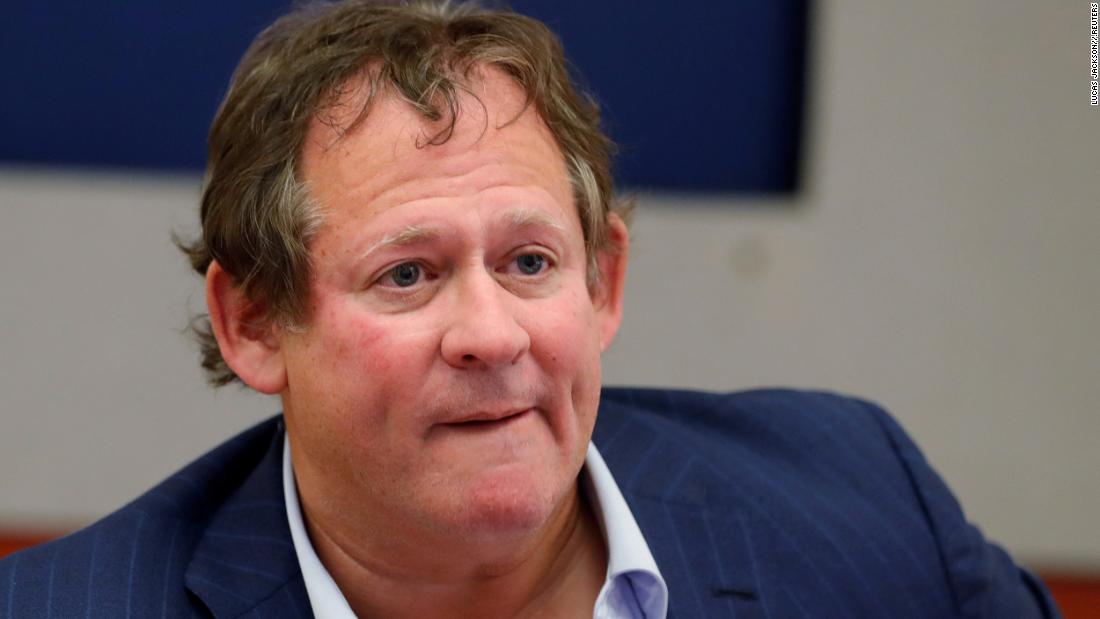
But Rieder, BlackRock’s chief investment officer for global fixed income, doesn’t think that reversing Trump’s tax cuts will weaken the economy – it could actually be positive for growth.
“I think 21% is too low,” said Rieder in the interview. He pointed out how many companies were using their tax savings to buy back shares as evidence that the benefit to businesses is “too high.”
Rieder said the US economy can “certainly” withstand higher corporate taxes, and suggested that raising the corporate tax rate could help ensure that economic profits are more evenly distributed between businesses and employees.
“The US economy is amazingly resilient,” he said, “and will in fact perform well if you get some of this income redistribution and consumption in an easier and better place, especially for lower and middle incomes.”
Pay off a mountain of debt
Last week, the Business Roundtable, a powerful alliance of CEOs, warned that an increase in the corporate tax rate would make US companies uncompetitive on the world stage, just as the recovery is gaining momentum.
“The Round Table will actively oppose efforts to increase corporate taxation,” Josh Bolten, the group’s CEO, said at a news conference.
But BlackRock’s Rieder suggested those concerns are exaggerated and don’t take into account the benefit of additional tax revenue after Washington piled billions of debt to fight the pandemic.
Rieder said a modest increase in the corporate rate “doesn’t really hurt cash flows” for companies and “allows us to maintain a lower debt profile nationwide.”
Fed could start winding down very soon
“I think it will surprise people positively,” said Rieder. “You’re going to see some pretty explosive growth for the economy.”
He added that “it has been a very long time” that he was so optimistic about the US economy.
Forecasts for a booming economy are putting pressure on the Federal Reserve to wind down its emergency stance – before it overheats the economy. Not only are interest rates at zero, but the Fed is still buying $ 120 billion in bonds every month.
“I think they should start phasing out the programs soon,” he said.
Fed launch plans may deter investors accustomed to extremely low interest rates. But Rieder dismissed those concerns.
“It won’t hurt the economy. In fact, in many ways it helps consumers and savers” who are hurt by the low interest rates on money in the bank, “he said.
Runaway inflation? Not so fast
Signaling an end to its crisis policy will also help the Fed keep inflation under control.
‘As a central bank you don’t want to fight from behind to keep inflation in check. It is so much more effective to be at the forefront and work out the plan. ‘
The big concern is that runaway inflation like that of the 1970s will force the Fed to hike interest rates quickly and wipe out the economic recovery.
While Rieder sees inflation accelerate, perhaps up to 2.5% year-on-year, he is not concerned about “explosive” price increases.
“I don’t think inflation will run away,” he said. “In fact, I think the cultural differences around inflation versus the 1970s and 1980s are huge.”
He pointed in particular to the role of technology, in which everything from Amazon and Uber to cloud computing keeps prices under pressure.
“The way people spend money, how they shop and find prices at a better level,” said Rieder. “Moreover, we no longer have a commodity-oriented production economy.”
